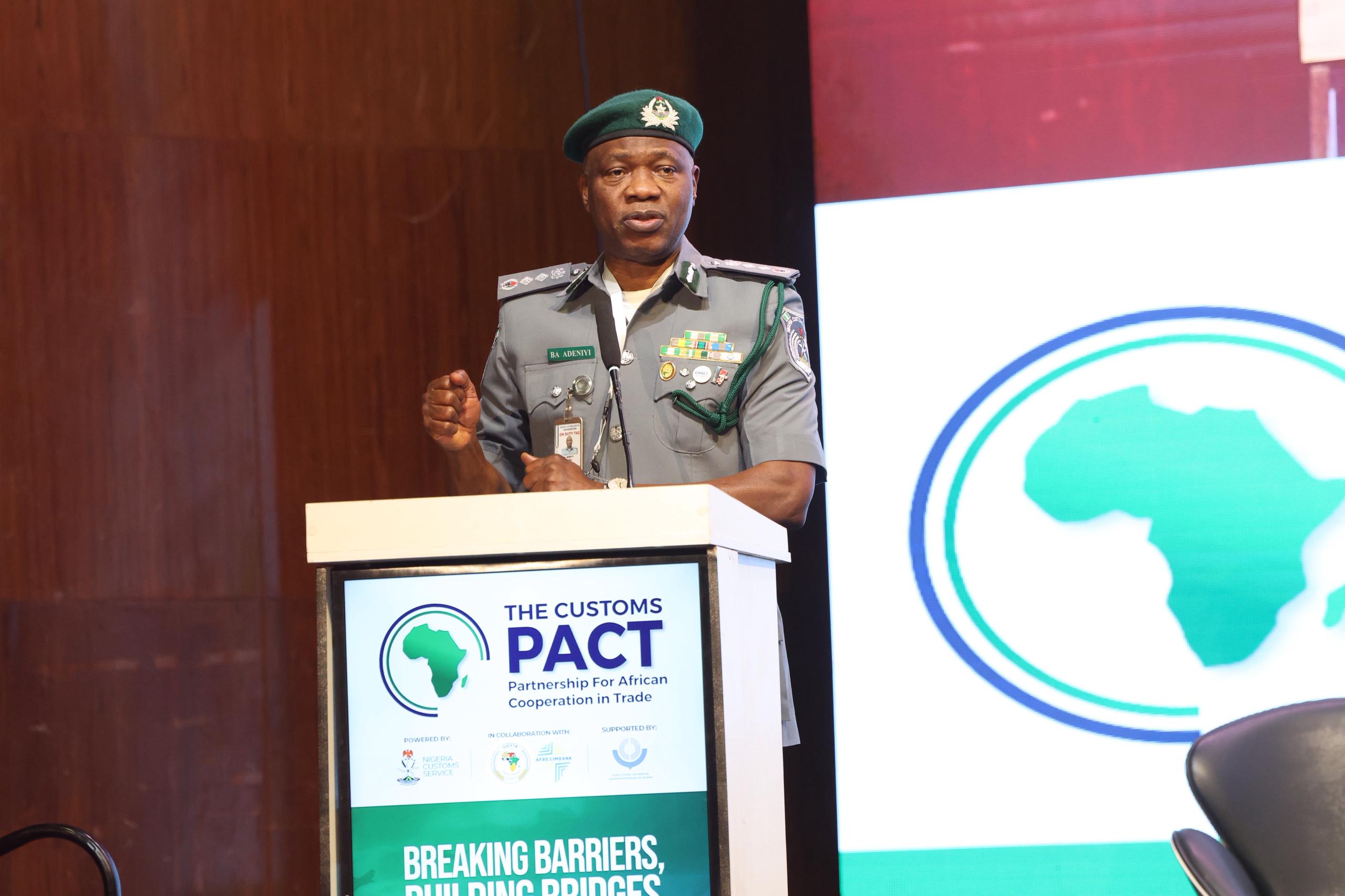NCS Concludes Maiden C-PACT Summit as African Customs Chiefs Unite to Tackle Non-Tariff Barriers

The Nigeria Customs Service (NCS) has successfully concluded the maiden edition of the Customs Partnership for African Cooperation in Trade (C-PACT) Summit, a landmark three-day engagement held in Abuja to advance the implementation of the African Continental Free Trade Area (AfCFTA).
The summit, which ended on 19 November 2025 at the Transcorp Hilton, brought together Customs leaders, trade experts, international partners, and private-sector operators to forge stronger cooperation across the continent.
Hosted by the Comptroller-General of Customs, Adewale Adeniyi, the summit featured several technical sessions and high-level dialogues aimed at reducing non-tariff barriers, strengthening border procedures, and aligning Customs policies to accelerate seamless intra-African trade.
Speaking at the closing ceremony, CGC Adeniyi described the summit as “a credible platform to move from fragmented efforts to collective solutions,” noting that the resolutions reached would shape renewed collaboration among African Customs administrations.
He emphasised that improved compliance systems, risk management frameworks, and harmonised border processes were essential to unlocking the full potential of AfCFTA.
According to the Customs chief, the C-PACT initiative – conceived and championed by Nigeria – would now serve as “a working mechanism for African Customs administrations to engage regularly, share operational experiences and harmonise processes in support of AfCFTA.”

The commitments echo the charge delivered at the opening session by Vice President Kashim Shettima, who represented President Bola Tinubu.
The Vice President had urged African countries to dismantle structural and procedural barriers to trade, arguing that continental competitiveness, industrial growth and stable commercial flows could only be achieved through unified action and predictable border systems.
The Secretary-General of the World Customs Organisation (WCO), Ian Saunders, also underscored the significance of the summit, reminding participants that Customs authorities play a pivotal role in delivering the practical realities of AfCFTA. “Customs is the institution that connects borders, enforces standards and determines how trade works on the ground,” he said.
Similarly, Afreximbank’s Executive Vice President, Kanayo Awani, warned that the continent risks missing out on AfCFTA’s economic opportunities without modernised and interoperable Customs systems.
She stressed that streamlined data exchange, digital documentation and upgraded infrastructure were crucial to supporting large-scale intra-African trade.

Across the technical sessions, delegates engaged in extensive deliberations on rules of origin, transit regimes, digitalisation, risk management, gender inclusion, and coordinated border management – areas repeatedly identified as stumbling blocks to efficient trade flows.
The administrations represented at the summit expressed satisfaction with the depth and candour of the discussions, agreeing that C-PACT should continue as a specialised technical platform for tracking progress and aligning national systems with emerging continental standards.
The private sector also played a prominent role at the summit. Freight operators, logistics companies, manufacturers, exporters and port administrators highlighted the operational challenges they encounter daily – including delays, inconsistent procedures, and documentation bottlenecks that heighten costs and discourage cross-border business expansion.
National President of the Association of Licensed Customs Agents, Emenike Kingsley, commended the summit for creating a rare avenue for Customs leaders and economic operators to jointly examine long-standing constraints in the trade ecosystem.
He noted that the collaborative environment fostered by C-PACT could pave the way for more predictable and business-friendly Customs operations across Africa.
With its maiden summit now concluded, stakeholders say C-PACT has laid a solid foundation for sustained policy harmonisation, improved trade facilitation, and a more integrated African market – all critical to achieving the transformative goals of AfCFTA.







